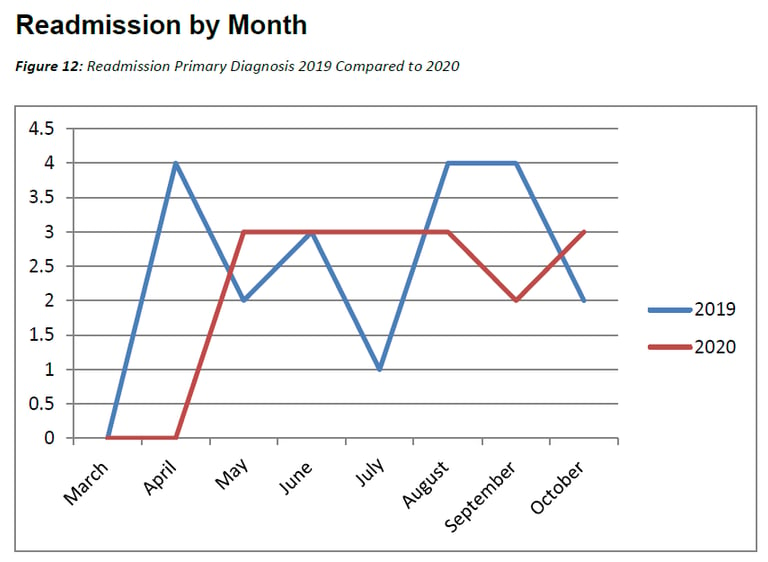Investigating the Impact of COVID-19 on Heart Failure Readmission Rates
Discover how the COVID-19 pandemic affected heart failure readmission rates, revealing key trends and patient challenges. Learn actionable strategies to enhance care delivery and resilience during healthcare crises.
RESEARCH ARTICLE
1/13/20253 min read


Introduction
The COVID-19 pandemic has significantly disrupted healthcare systems worldwide, highlighting critical vulnerabilities, particularly in managing chronic conditions such as heart failure. This study explores the impact of the pandemic on hospital readmission rates for heart failure patients at a tertiary care facility. The findings offer insights into healthcare delivery challenges and provide actionable recommendations to improve patient care during and after such unprecedented health crises.
Background
In this research study, we aimed to explore how the COVID-19 pandemic influenced hospital readmission rates for heart failure patients at a tertiary care facility. The study aimed to identify key patterns, challenges, and opportunities that could inform improvements in healthcare delivery and patient outcomes during and beyond the pandemic.
Approach
Data Collection and Integration:
We accessed anonymized medical records from the facility to compare heart failure admissions and readmissions before (March–October 2019) and during the pandemic (March–October 2020). Additionally, we conducted patient interviews to gather qualitative insights into the pandemic's impact on healthcare access and patient behaviors.Quantitative Analysis:
We performed statistical analysis to evaluate trends in admissions, readmissions, and lengths of stay. This included identifying disruptions in care, such as the suspension of cardiac rehabilitation programs and other critical healthcare services.Qualitative Insights:
Interviews with patients revealed significant barriers to seeking care during the pandemic, including fears of contracting COVID-19, difficulties with telehealth access (particularly for elderly and non-English-speaking patients), and reduced community engagement with healthcare services.Recommendations Development:
Based on our findings, we developed recommendations aimed at addressing the key challenges faced by patients and healthcare systems during the pandemic. These strategies focus on improving patient communication, enhancing telehealth accessibility, and fostering community engagement to build trust in healthcare services.
Results
The study revealed several key findings:
A significant decrease in heart failure admissions and readmissions during the pandemic (2020) compared to the same period in 2019.
Fear of contracting COVID-19 was identified as a major barrier preventing patients from seeking timely care.
Elderly and culturally and linguistically diverse (CALD) populations faced unique challenges in accessing virtual care services, due to both technological limitations and language barriers.
The suspension of cardiac rehabilitation programs during the pandemic had a noticeable impact on patient outcomes, underscoring the importance of continuous care for heart failure patients.
Recommendations
Patient Communication Strategy:
Develop a comprehensive communication package to educate patients and families on infection control measures, what to expect during hospital admissions, and the benefits of seeking timely care despite pandemic concerns.Enhanced Telehealth Accessibility:
Introduce Digital Patient Navigators to support elderly and CALD patients in using telehealth services, including step-by-step guidance and troubleshooting for virtual consultations.
Implement a Virtual Rapid Heart Failure Access Model of Care to provide timely remote interventions, monitoring, and support for heart failure management during times of crisis.Community Engagement:
Launch awareness campaigns aimed at building trust in healthcare services. These campaigns would focus on educating the community about the importance of maintaining care during health crises and promote the use of telehealth as an accessible and effective solution.
Lessons Learnt
This project demonstrates the vital role of combining quantitative data analysis with qualitative insights to tackle complex healthcare issues. It also emphasizes the need for adaptive healthcare strategies to maintain continuity of care during disruptions, such as pandemics.
Key lessons include:
The importance of strategic communication to ensure clear and consistent messaging.
Expanding telehealth accessibility to reach patients remotely.
Prioritising community engagement to build trust and maintain high-quality care.
Develop resilience strategies for future health emergencies.
Ensure vulnerable populations continue receiving essential care, even in challenging circumstances.
Conclusion
This research provides valuable insights into the healthcare challenges faced during the COVID-19 pandemic and offers evidence-based recommendations to mitigate the disruptions caused by such health crises.
Call to Action
If you are interested in discussing how these recommendations can be applied to your healthcare organisation or region, or if you would like further insights into our study and how it can inform your healthcare strategy, please feel free to reach out.


SA Global Health Consulting
Strategic insights for global health solutions.
© 2024. All rights reserved.
Location: Islamabad, Pakistan Email: seemab@saglobalhealth.com
